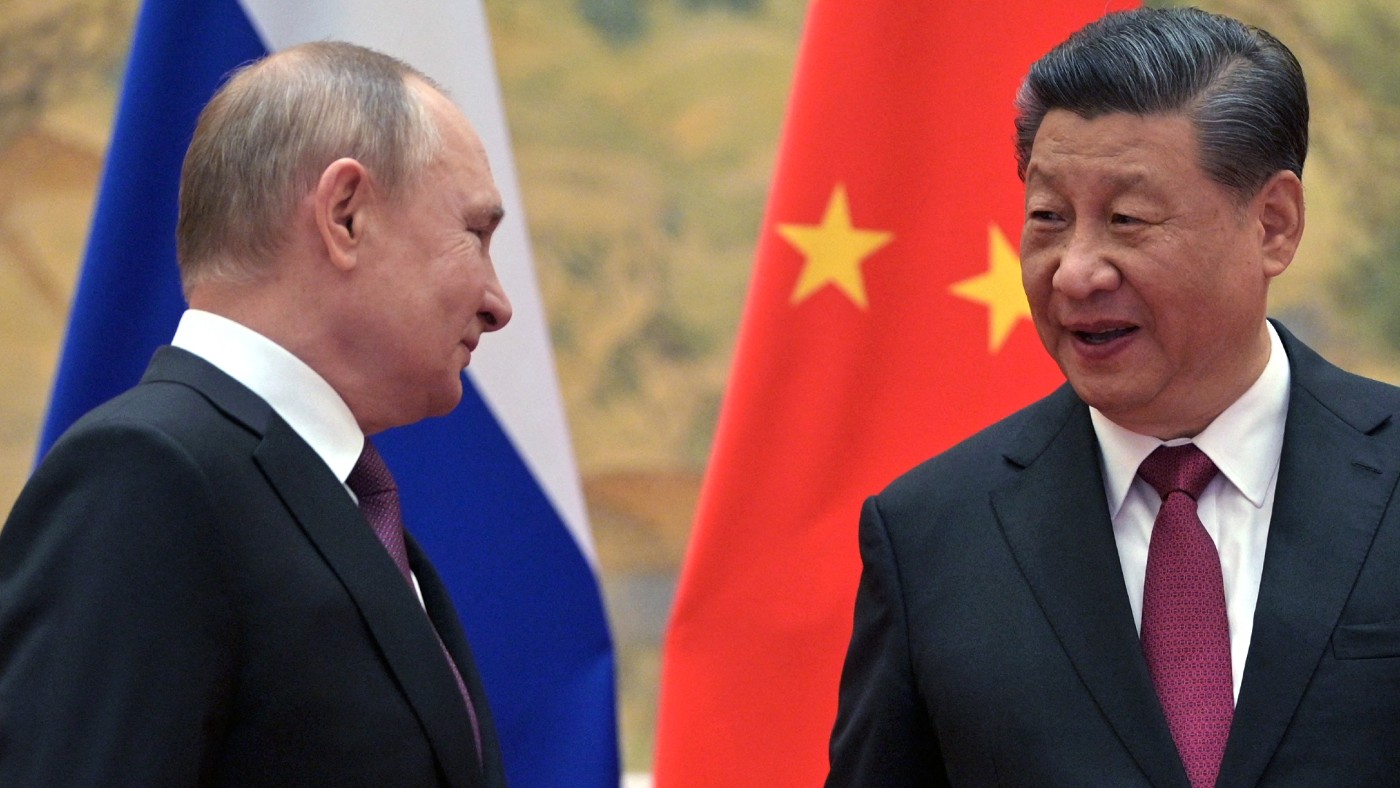How Xi and Putin meeting could affect Ukraine
Summit comes with Russia needing Chinese support for its faltering war effort

A free daily email with the biggest news stories of the day – and the best features from TheWeek.com
You are now subscribed
Your newsletter sign-up was successful
Vladimir Putin and his Chinese counterpart Xi Jinping are to meet tomorrow for their first face-to-face talks since Russia invaded Ukraine in February.
The meeting during the Shanghai Cooperation Organisation summit in Uzbekistan signals “the importance of the Russian relationship for China, even in the face of international blowback against Moscow” over the Ukraine war, said CNN.
However, the two leaders’ political fortunes are contrasting wildly. Xi is “seeking a historic third term” as president of China, while Putin’s relations with the West are “at rock bottom over Ukraine”, said the BBC.
The Week
Escape your echo chamber. Get the facts behind the news, plus analysis from multiple perspectives.

Sign up for The Week's Free Newsletters
From our morning news briefing to a weekly Good News Newsletter, get the best of The Week delivered directly to your inbox.
From our morning news briefing to a weekly Good News Newsletter, get the best of The Week delivered directly to your inbox.
The two presidents have established a close relationship in recent months. Putin travelled to Beijing in February to attend the Winter Olympics, which was boycotted by many Western nations in protest at China’s human rights record.
During that meeting, the two men framed a “no limit” partnership and released a 5,000-word joint statement expressing their joint opposition to the “further enlargement of Nato”.
The Washington Post reported that experts now say that Xi and Putin “may be hoping that another meeting with each other will help bolster their standing at home and abroad”.
Alexander Gabuev, senior fellow at the Carnegie Endowment for International Peace think-tank, said that Putin was showing that he still has powerful allies. “How can you isolate Russia, when China stands back to back with it?” Gabuev said.
A free daily email with the biggest news stories of the day – and the best features from TheWeek.com
For Xi, the summit is a signal that China “will not give in to the pressure of countries that are trying to make Putin and Russia a pariah country”, he added.
Since the Ukraine conflict began, Xi has declared his support for Russia’s “sovereignty and security” and has opposed Western sanctions against Moscow. China has bought record amounts of Russian energy supplies, in defiance of sanctions.
And Chinese exports of cars, televisions and smartphones have “helped Russia fill a void as foreign brands flee”, said Bloomberg. More than 80% of Russia’s new car imports in the second quarter of 2022 were from China.
But while the two countries are “united by their desire to challenge what they see as America’s bid for global hegemony”, says The Times, China is unwilling “to cross Washington’s red lines by supplying Moscow with weapons for its war in Ukraine”.
In fact, said The Guardian, the strength of the “limitless” ties between the two nations will be tested at the summit as analysts predict that Putin will seek more help from China after a week in which Russian forces were driven out of large areas of northeastern Ukraine they had previously occupied.
“The relationship between Xi and Putin was never one of equals,” wrote Frida Ghitis for CNN, “but now Putin is encountering Xi during one of the most disastrous moments of his unprovoked invasion of Ukraine” and Putin now “needs Xi much more than Xi needs Putin”.
And Chinese exports of cars, televisions and smartphones have “helped Russia fill a void as foreign brands flee”, said Bloomberg. More than 80% of Russia’s new car imports in the second quarter of 2022 were from China.